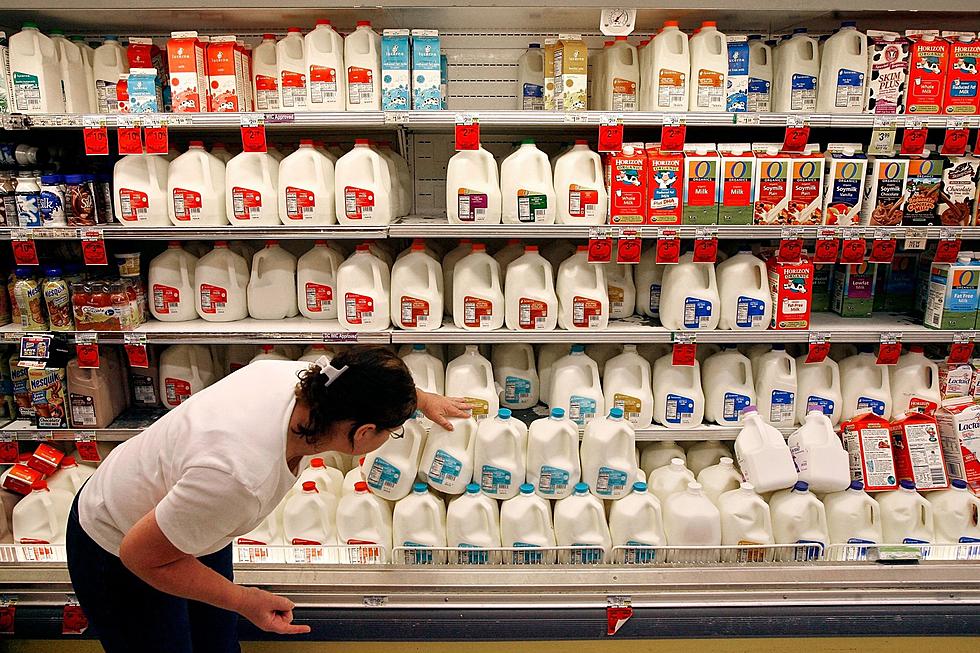
How Much Attention Do You Pay to Product Expiration Dates?
You see them on just about every item you get at the grocery store, but how much attention do you pay to those expiration dates?
For some of us, those dates are absolute. When you get to that day on the calendar, that item is destined for the trash no matter what.
For others, those dates are merely suggestions. It's the good old 'sniff test' that is the true determining factor.

Now, at least one British supermarket chain is rethinking how they handle expiration dates on their milk products.
The BBC is reporting that Morrisons is doing away with 'use by' dates on most of their milk, in the hopes of saving millions of pints of good milk from being poured down the sink.
The stores will instead place 'best before' dates on 90% of its own-brand milk while encouraging customers to use a 'sniff test' to check quality.
Morrisons has already scrapped 'use by' dates across some of its own-brand yogurt and hard cheese ranges.
So what are the differences with all of the various types of dates on products?
WebMD says there are five main categories:
- Sell-By Date - For refrigerated products like milk, yogurt, cream, eggs, lunch meat, and salad mixes. Despite the dates, dairy products are generally good for one week after the sell-by date. Eggs are safe for three to five weeks after the sell-by date.
- Best if Used by Date - Eat your food before this date for the best flavor and quality. Your food doesn’t spoil after this date, but it may dry out or not taste as good.
- Use-By Date - Eat food by this date for the best quality. Manufacturers assign these dates to food products. Your food may be good past the use-by date.
- Expiration Date - Products like infant formula, baby food, vitamins, over-the-counter medications, cake mix, and baking powder may not function the same after the date listed.
- Quality Assurance Date - For products with longer shelf lives like boxed macaroni and cheese, boxed soups, bakery items, cereal, peanut butter, and mayonnaise. These may be good after the quality assurance date but could lose some flavor or texture.
The website also offers these tips for storing and consuming food safely:
- Ground meat and poultry are good for one or two days in your fridge. If you plan to use it later, freeze it right away.
- Cooked meat and poultry are good for three to four days when stored in your fridge.
- Lunchmeat is good for two weeks before it’s opened and three to five days after it’s opened.
- Dry rice or pasta is good for one to two years in your pantry. Once prepared, it’s good for three to four days in your fridge.
- Steaks are good for three to five days in your fridge.
- Canned fruit is good for 12 to 18 months in your pantry. Once opened, it’s good for five to seven days if stored in the fridge.
TRENDING FROM RESULTS-TOWNSQUARE SIOUX FALLS:
- Six of South Dakota's Most Notorious Criminals
- One Of South Dakota's Coolest Parks Is Just East of Sioux Falls
- A Pickup Popular In South Dakota Recalled For Loose Nuts
- Help Iowa Man Whose House was Badly Damaged in Fire, Bongs Taken
Good Earth State Park-South Dakota
LOOK: Food history from the year you were born
CHECK IT OUT: See the 100 most popular brands in America
KEEP READING: Here are 6 foods from your cookout that could harm your dog
More From KXRB









